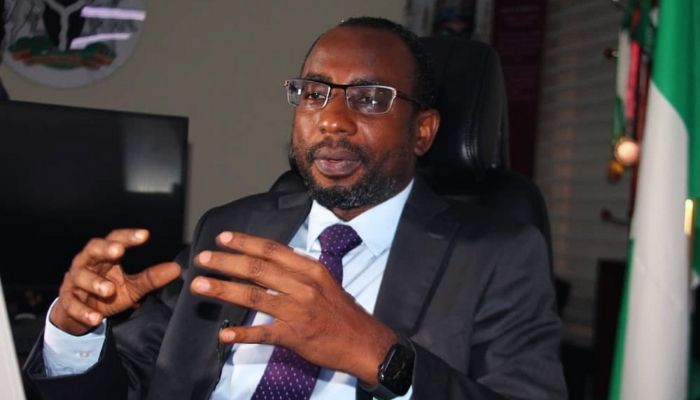Unveiling the NITDA’s Strategic Roadmap and Action Plan 2.0, Kashifu Inuwa, director general of the National Information Technology Development Agency (NITDA), has pointed out that Nigeria must invest in learning centres and innovation hubs to promote digital inclusion.
Inuwa underscored the importance of working with stakeholders in the technology ecosystem to accomplish a resilient and prosperous digital transformation for Nigeria.
He was a keynote speaker at the Omniverse Summit in Lagos, which was held at the Landmark Event Centre. Making a lasting impact on Nigeria’s digital future requires shared goals, resources, and knowledge, as Inuwa pointed out. Nigeria aspires to be a digitally empowered nation that promotes inclusive economic growth through technology and thrives on innovation.
Read also: Nigeria leads Africa in tech startups
What Inuwa addressed
Inuwa emphasised the significance of stakeholder collaboration while outlining the core elements of the Strategic Road-map and Action Plan (2024–2027) SRAP 2.0. In accordance with President Bola Ahmed Tinubu’s directives, the NITDA Director-General has stated that the road map is based on eight strategic pillars that aim to speed up the digital transformation of all essential economic sectors.
In his view, the “Accelerating our Collective Prosperity through Technical Efficiency” blueprint put forth by the Ministry of Communications, Innovations, and Digital Economy aligns with SRAP 2.0’s six tenets: knowledge, policy, infrastructure, innovation, entrepreneurship, capital, and trade.
According to him, the first pillar aims to achieve 70% digital literacy by 2027 with the help of the National Digital Literacy Framework and the development of technical talents. The latter is being carried out through an initiative called “the 3 Million Technical Talent (3MTT)”, which is part of the Ministry’s efforts to combat the imminent global talent deficit and establish Nigeria as a world leader in technological expertise.
According to Inuwa, the second pillar is to establish a strong tech research system with the goal of elevating Nigeria to the 25th percentile of global rankings in six critical areas: artificial intelligence (AI), internet of things (IoT), robotics (RO), additive manufacturing (AM), blockchain, and unmanned aerial vehicles (UAVs).
The third pillar highlights the importance of a well-defined legal framework and effective policy implementation, with the participation of all ecosystem stakeholders in reaching national objectives.
The fourth pillar, he said, is to invest in learning centres and innovation hubs across the nation to promote inclusive access to digital infrastructure and services, with the goal of connecting the unconnected.
The fifth pillar is to improve digital trust and strengthen cybersecurity. Instilling trust in digital platforms for their users is crucial, and this tackles that.
According to him, the sixth pillar should centre on strategies for fostering an entrepreneurial and innovative ecosystem, which can lead to industry synergy and a foundation for digital transformation. The seventh pillar of the SRAP is to establish partnerships and collaborations with external stakeholders; this is apparent in NITDA’s active partnership with the Omniverse platform. The eighth and final pillar of the SRAP is to foster an agile workforce and a vibrant organisational culture within NITDA.
Then, he gave a QR code so that stakeholders could easily download the road map in PDF format, and he asked for their feedback so that they could make it even better for everyone.
Inuwa reaffirmed the government’s dedication to fostering policies that enable citizens to thrive. He claims that the goal is to make Nigeria a leading player in the global digital economy by placing the country in the top 25 in areas such as AI, Internet of Things, unmanned aerial vehicles (UAVs), robotics, Blockchain, and additive manufacturing.
The goal of the Omniverse Summit is to propel the digital economy across the continent. At this summit, we will examine the stories told about Africa and Africans, with an eye towards reclaiming power over these stories so that we can reshape the economic, social, and geopolitical landscapes of the future.
Other contributions
Isioma Udeozo, Dr. Thwueba, Charles Emembolu, and Omniverse Summit convener Obi Asika all made impassioned statements during a panel session titled “Why Omniverse? Described the Omniverse as a platform for collaboration that aims to unite individuals. One of the program’s primary goals, they said, was to unite various parts of the ecosystem, such as the academic community, tech companies, startups, gamers, the entertainment industry (film, television, music, etc.), and the arts and culture.
In their submission, they pointed out that the goal is to make it easier for everyone to know what’s going on in the world, especially in Nigeria and Africa.
Stakeholders discuss digital Innovation at NITDA Co-create Summit
During his speech, Mr Will Stevens, the US Consul General, emphasised Nigeria’s position as the largest economy and democracy in Africa and stated that this vital platform was created by the country’s dynamic digital innovation ecosystem.
Instead of focusing on what can be done for Africa, Mr Williams emphasised a shift in focus to what can be accomplished as a team. In particular, he emphasised the need for African nations to have a strong say in international policy debates concerning climate change, food insecurity, and worldwide pandemics.
His demand for an African voice on the United Nations Security Council highlights the importance of African solutions to global issues and places an emphasis on international cooperation.
He brought up the fact that protecting intellectual property and dealing with exchange rate risks are two of the many obstacles that Nigeria, an innovation powerhouse, must overcome. The partnership between American and African tech startups is significant and worth mentioning, as approximately 60% of Nigeria’s venture capital comes from American sources.
In spite of this, he did come to the conclusion that IP protection on a national level is necessary, as is the establishment of legislation to assist new businesses so that inventors can keep their innovations within the nation. The most pressing issue is to encourage teamwork that transcends national lines in order to address global issues as a whole.
















